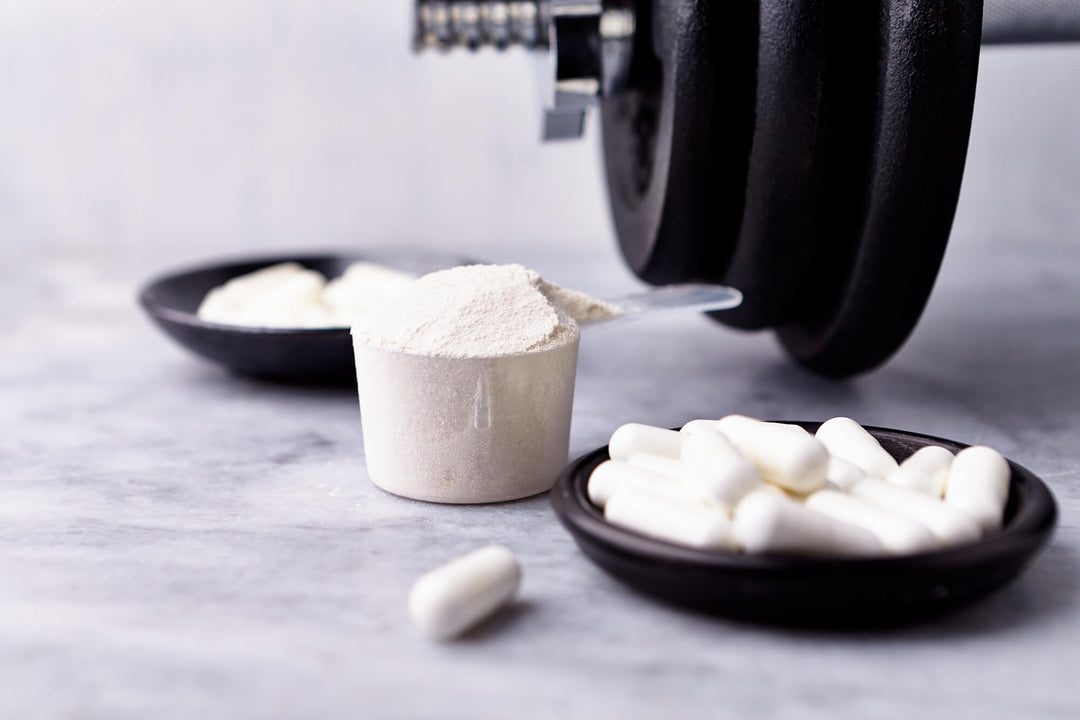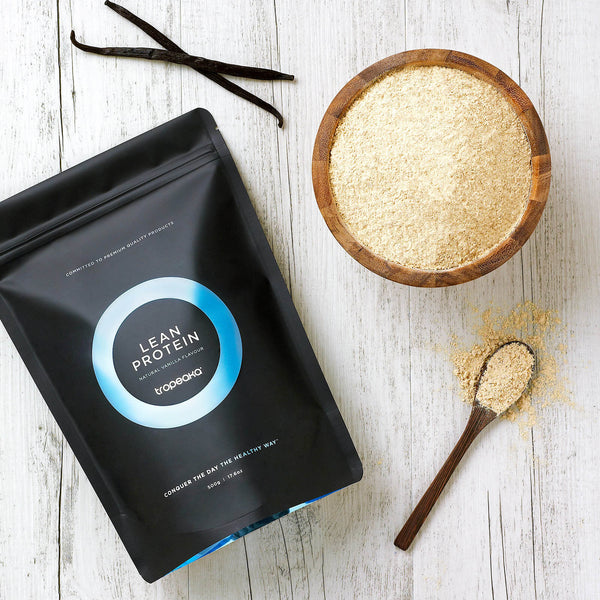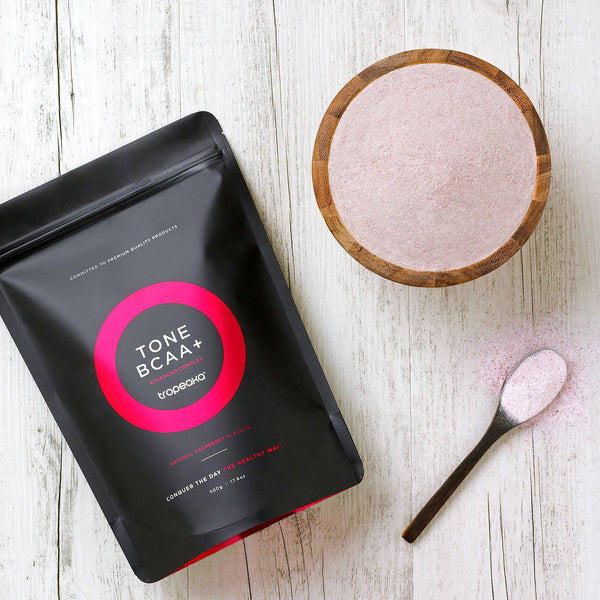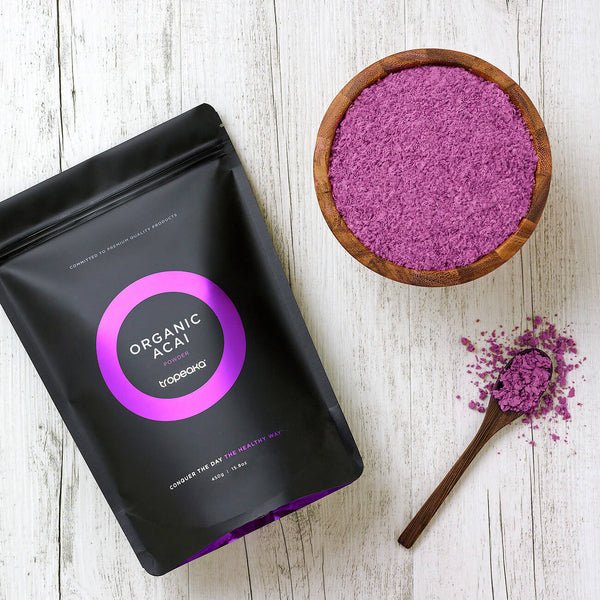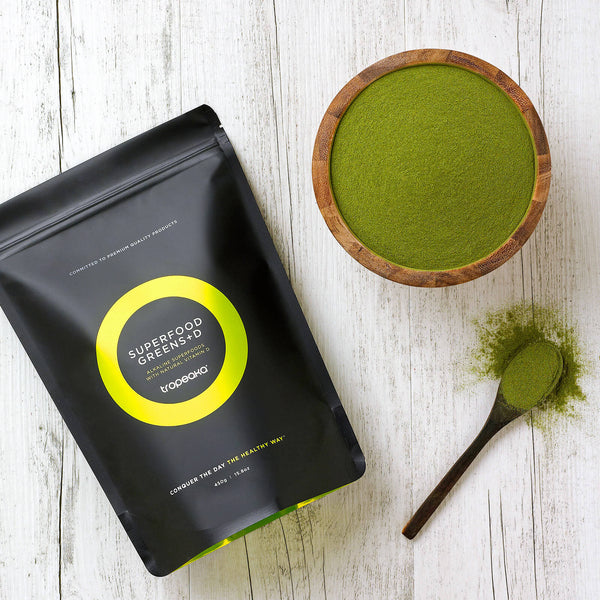Both glutamine and BCAAs are popular among athletes and those who exercise because of the impact they have on one's exercise performance and recovery.
B
oth of these amino acids can be found in food sources but are also sold in supplement form. But what is the difference between these two supplements? And which should you take?
In this article, we're going to explain the benefits and differences between glutamine and BCAAs and let you know who should take them. Keep reading to find out!
What is glutamine?
Glutamine is one of the 20 naturally occurring amino acids that can be found in protein. It is one of the most abundant amino acids in our body and is also known as a conditionally essential amino acid. This means that our body can make some of this amino acid on its own, but we also use it in large quantities. It becomes an essential amino acid when the body needs to maintain and repair itself.
It is found naturally in animal and plant proteins, such as meats and vegetables, but also in supplement form, like powders or capsules.
Glutamine helps support immune function by helping your body produce antibodies and white blood cells. It also supports healthy digestion and absorption of nutrients.
Glutamine has been shown to help reduce muscle soreness after exercise due to its anti-inflammatory properties. It can also be used as a natural energy source for muscles during times of stress or illness.
The main purpose of glutamine supplementation is to provide additional fuel for the immune system and other bodily functions
How do glutamine supplements work?
The main purpose of glutamine supplementation is to provide additional fuel for the immune system and other bodily functions. When the body is under stress, it will begin to break down muscle tissue and release amino acids into the bloodstream. These amino acids are then transported throughout the body where they are needed. If there isn't enough glutamine available, the body may not be able to transport all of the necessary amino acids to different parts of the body.
This could lead to fatigue, weakness, and even muscle wasting. Supplementing with glutamine can help increase the number of amino acids available to the body so that it doesn't need to rely on breaking down muscle tissue.
Benefits of glutamine- Improved digestive and immune health
- Reduction of muscle mass breakdown
- Reduces muscle soreness
- Speeds up muscle recovery time
Unlike glutamine, which is a single amino acid, BCAAs include three essential amino acids: leucine, valine and isoleucine
What is BCAA?
BCAAs are branched-chain amino acids, which are considered the building blocks of protein. They are also commonly found in foods, but mainly high-quality proteins, such as meats, dairy, eggs, and legumes. These are also essential, and we need to get them from our diet because our bodies don't make them naturally.
Unlike glutamine, which is a single amino acid, BCAAs include three essential amino acids: leucine, valine and isoleucine. They play a crucial role in protein synthesis and muscle repair. Leucine is the most important amino acid because it is in charge of protein synthesis and cell growth.
BCAAs play a huge role in increasing the rate of muscle protein synthesis and preventing muscle breakdown. Muscle protein synthesis is when your body uses amino acids to build new muscle tissue. This helps to ensure you maintain lean muscle mass and don't experience any muscle loss.
How do BCAA supplements work?
BCAA supplements can be taken before or after exercise. The reason why they are used before exercise is that they help with recovery by promoting protein synthesis. Protein synthesis occurs during rest periods between workouts. If you take BCAA supplements before working out, this will promote protein synthesis and help you recover faster.

The reason why they are taken after a workout is that they help prevent muscle breakdown. When you consume BCAAs, these amino acids are reabsorbed back into your bloodstream. This prevents your muscles from breaking down and ensures you have enough amino acids for protein synthesis.
Benefits of BCAAs- Speeds up muscle recovery time
- Reduction of muscle mass breakdown
- Improves endurance and energy levels
- Prevents muscle fatigue
Main Differences Between glutamine and BCAAs
There are many benefits associated with both glutamine and BCAA supplements. However, there are some differences between them.

Essential vs. Non-Essential Amino Acid
BCAAs are essential amino acids, whereas glutamine is a non-essential amino acid. Essential amino acids have to be consumed in food or supplements. Non-essential amino acids are naturally produced by your body but can be supplemented by consuming protein foods or supplements. glutamine supplementation is usually necessary when you are trying to prevent muscle damage or protect your immune health.
Health Benefits
BCAAs and glutamine both have numerous benefits that support muscle building and recovery post-workout. BCAAs have been proven to lower blood sugar levels, support healthy weight loss, and reduce complications in the liver. glutamine has been shown to help improve digestive function by rebuilding your intestinal tract and interior gut lining. It is also essential for immune health and can help fight off infection and disease.

Muscle Recovery
BCAAs and glutamine are both known for their ability to speed up muscle recovery. When you perform intense workouts, your body breaks down muscle fibers and releases lactic acid into your bloodstream. The more muscle fibers you break down, the longer it takes for your body to recover. By supplementing with either BCAAs or glutamine, you can increase the amount of protein synthesis in your body, which will allow your body to rebuild damaged muscle cells faster.

Energy Levels
Both BCAAs and glutamine can provide an immediate boost of energy. While this may not seem like much, if you're training hard, you'll notice how much better you feel after taking these supplements. BCAAs provide sustained energy, which is great for endurance athletes and those who want to train longer and harder without fatigue setting in.
BCAAs have more benefits specific to building muscle and supporting muscle growth. glutamine doesn't directly support muscle growth, but it can help reduce soreness and recovery times
Glutamine vs. BCAAs: Which Should You Choose?
The choice between glutamine and BCAAs is really up to personal preference and your exercise routine. Both are great choices for athletes looking to maximize performance and recovery.
BCAAs have more benefits specific to building muscle and supporting muscle growth. glutamine doesn't directly support muscle growth, but it can help reduce soreness and recovery times.
So take into account all of these things when choosing your supplements. Everybody has different needs and preferences, but there is sure to be one that will help.

